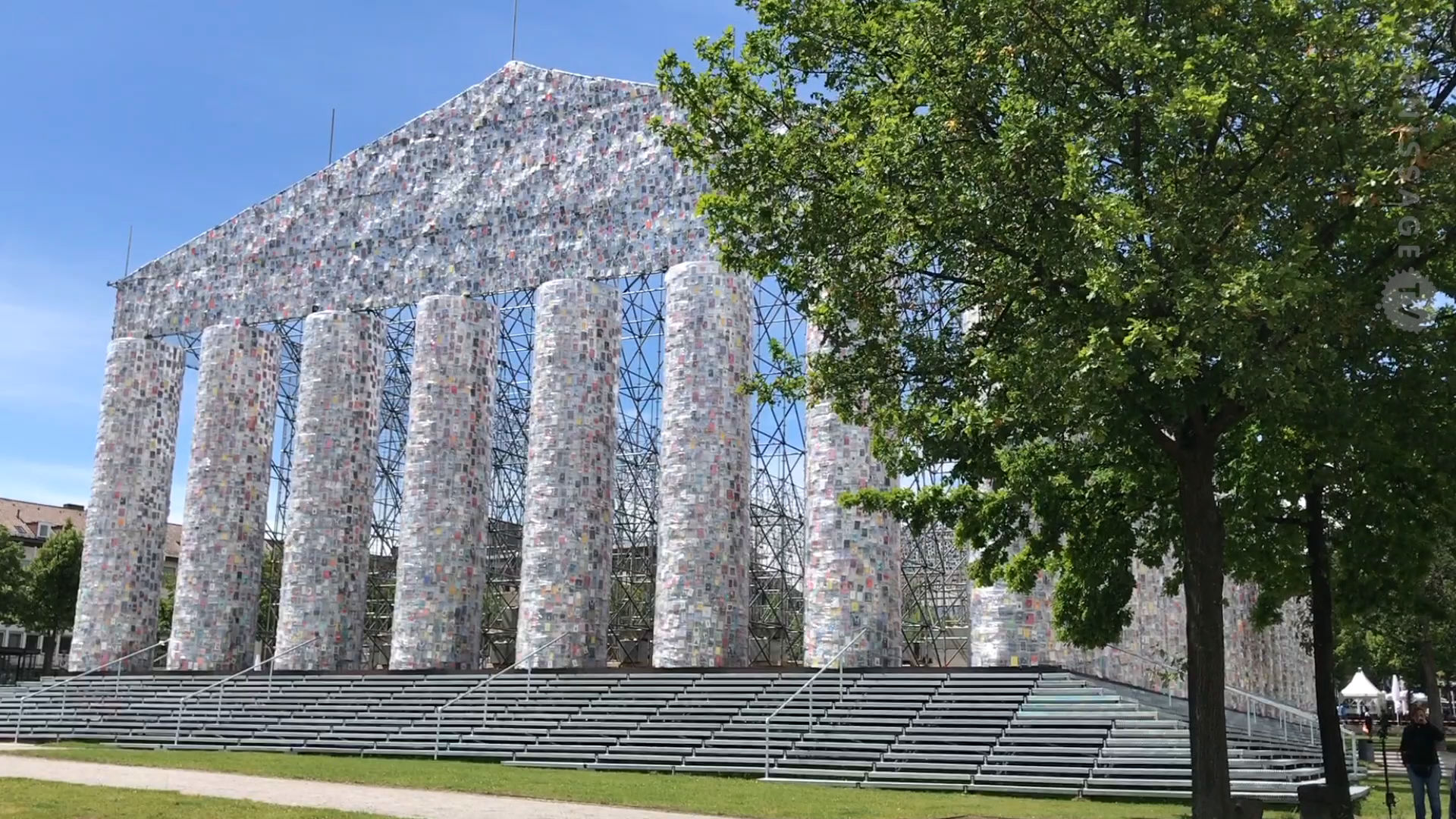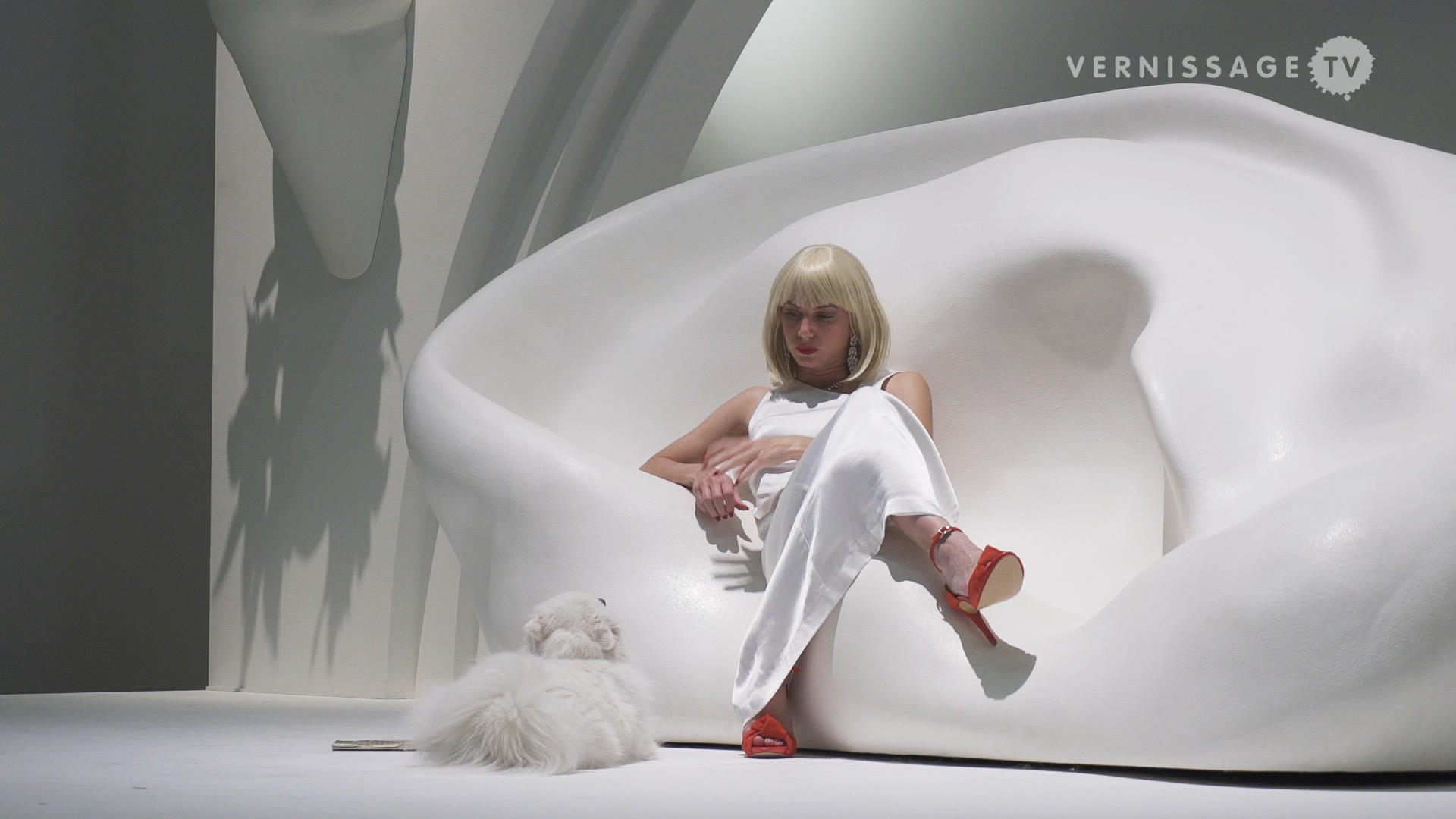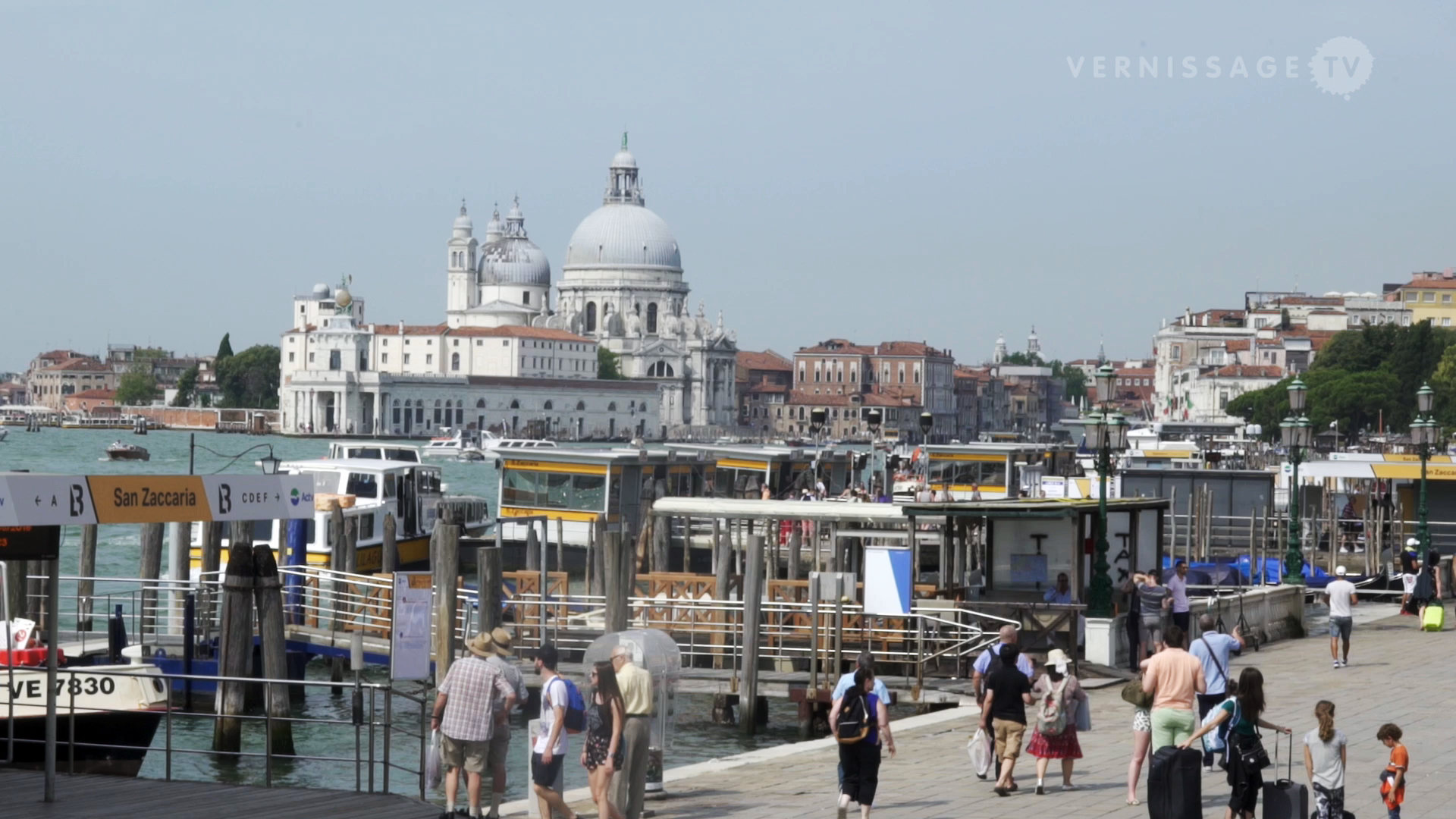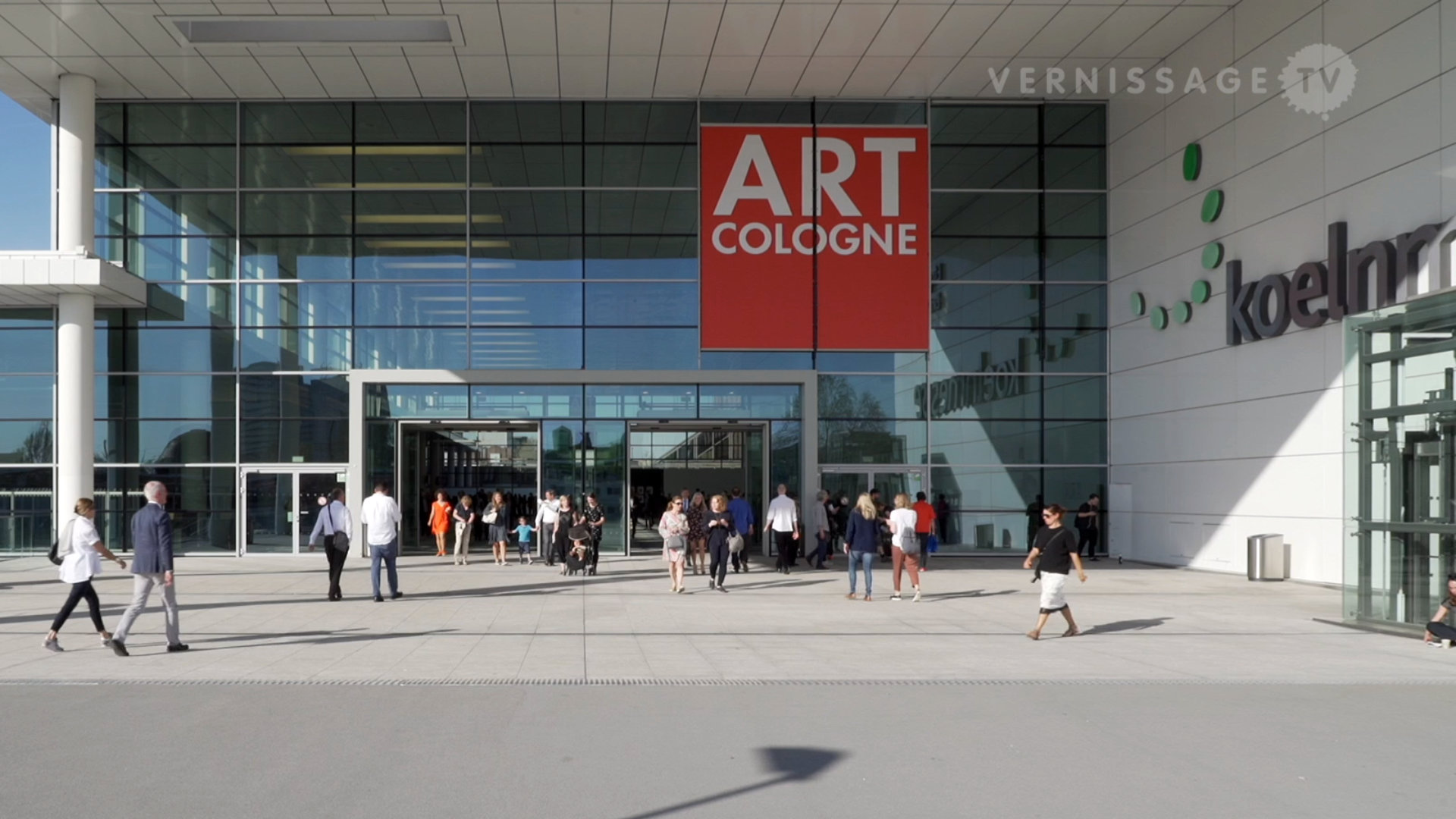Maximum Security Society is the title of American artist Julia Scher’s current solo exhibition at Kunsthalle Zürich. Scher’s work addresses issues of surveillance, control and seduction. Julia Scher’s first institutional survey brings together a selection of works from the last 30 years: multimedia installations, video works, sculptures and print and internet projects. The central installation, Predictive Engineering (1993-present), is a new production for the Kunsthalle Zürich exhibition. The exhibition runs until January 15, 2023.
This video provides you with an exhibition walkthrough and an interview with the artist. Julia Scher: Maximum Security Society. Solo exhibition at Kunsthalle Zürich.
Exhibition walkthrough and interview with Julia Scher, Zürich (Switzerland), October 7, 2022.
> Right-click (Mac: ctrl-click) this link to download Quicktime video file.
Exhibition text (excerpt):
Julia Scher (b. 1954 in Hollywood, CA, lives in Cologne) has traced the gradual emergence of a ‘maximum security society’ since the 1980s. This is how sociologist Gary T. Marx describes the current era of encompassing surveillance technologies and infrastructures: ‘Many of the kinds of surveillance once found only in high security military and prison settings are seeping into the society at large. Are we moving toward becoming a maximum security society where ever more of our behavior is known and subject to control?’ Scher’s first institutional survey brings together a selection of works from the last 30 years: multimedia installations, video works, sculptures and print and internet projects (see also here).
The central installation, Predictive Engineering (1993-present), a new production for the Kunsthalle Zürich exhibition, plays with the impression that visitors are being checked over for suspicious appearances or behaviour. The mix of real and staged video footage (so-called Fake Feeds) leaves it unclear what form of protection (or threat) one should anticipate. The pseudo-brand ‘Security by Julia’ under which Scher has operated since the late 1980s indicates the commercial interests that are behind much surveillance infrastructure.
A sales catalogue from 1991 offers fictitious services and products such as ‘random public evaluations’ and ‘behavior and productivity deviance detectors’, while Scher has produced underwear, condoms and – more recently – hand sanitiser dispensers with the brand. Maximum Security Society furthermore brings together the three ‘embedded’ beds Mama Bed, Papa Bed and Baby Bed (all 2003), which, equipped with cameras and monitors, make it evident how observation and communication (or, today, ‘sharing’) have permeated into the most intimate corners of our lives. The constellation of Mama/Papa/Baby also refers to another form of surveillance, that of the nuclear family and the normative constructions that are, we know, particularly evident in intimacy and sexuality – and can violently dominate there. In concert with these, the 1988 film Discipline Masters is a four-hour, confessional soliloquy in which the artist attempts ‘to preserve her understanding of [her] life history’.
While Scher is known for her surveillance installations that address psycho-social dynamics and perversions, the formal, sculptural quality of her work is often overlooked. It is precisely this that the exhibition Maximum Security Society at Kunsthalle Zürich also aims to highlight, whether in works such as Girl Dog Hybrid (2005), Hidden Camera (Architectural Vagina) (1991-2018) or Surveillance Area (1994).



